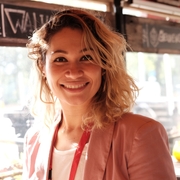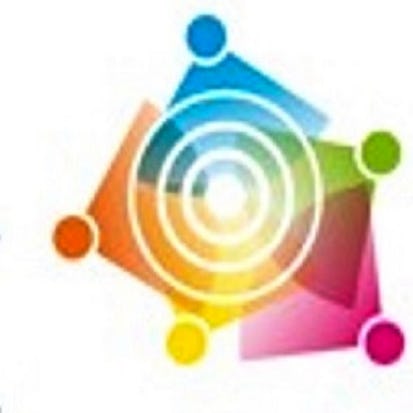- Level Professional
- Duration 15 hours
- Course by University of Amsterdam
-
Offered by

About
Sonar-Global is a collaborative work to mobilize social sciences against infectious threats. It is a sustainable international network to strengthen the active participation of the social sciences in the prevention and response to infectious threats, including those posed by antimicrobial resistance (AMR) and vaccine hesitancy. The Sonar-Global's Social Dimensions of Antimicrobial Resistance MOOC is an independent course for non-social scientists who want to know more about the social dimensions of AMR. Furthermore, the course is also the basis for the OPERATE-SOC AMR curriculum, which is a curriculum developed for trainers who need to provide interdisciplinary training about the social dimensions of antimicrobial resistance to non-social scientists. This MOOC includes lectures on important social science dimensions by 19 social science experts in the field of AMR, and it has been fully developed by social scientists. The training objectives of this MOOC are: • To provide a guided introduction to the social dimensions of AMR • To learn about the relevance of social science perspectives and approaches in the study of AMR • To get introduced to the need for interdisciplinary collaboration with social scientists when working on AMR • To serve as a basis for the Sonar-Global OPERATE-SOC curriculum For more information, please visit the website: www.sonar-global.euModules
Introduction
2
Videos
- Introduction to course
- Involvement of the social sciences in AMR
3
Readings
- Introduction to course
- Historical milestones in the development of attention to the AMR issue
- About the involvement of the social sciences in AMR
Microbes and Resistance
1
Videos
- The global burden of AMR
2
Readings
- About the global burden of AMR
- Further video resources
Social Science Research Strategies
1
Assignment
- What did you learn about social sciences research trategies?
2
Videos
- Social science research strategies
- Language and imaginings of AMR
3
Readings
- Social Sciences as a gap in the field of AMR.
- About language and imaginings of AMR
- Science and technology studies (STS) approach to AMR
One Health, collaboration, linkages, and social science priorities
1
Assignment
- What did you learn about One Health, linkages and social science priorities?
2
Videos
- The complexity of antimicrobial resistance
- Epidemics and AMR
3
Readings
- The complexity of AMR
- About epidemics and AMR
- The super-wicked problem of antimicrobial esistance
People and Publics
1
Assignment
- What did you learn in people and publics?
7
Videos
- Stigmatization on AMR
- Perceptions of Antibiotics
- Healthcare seeking behaviour and antibiotic use
- Self-medication with antibiotics: a social sciences approach
- Over-the-counter use of antimicrobials
- AMR networks, relationships, and infrastructures
- Sociology of Antimicrobials
8
Readings
- AMR experiences
- About stigmatization on AMR
- About the perception of antibiotics
- About the health seeking behaviour
- About self-medication with antibiotics: a social sciences approach
- About over-the-counter use of antimicrobials
- About infrastructures and AMR
- About the sociology of antimicrobials
Systems and Environments
1
Assignment
- What did you learn in systems and environments?
6
Videos
- Implementing antimicrobial stewardship in hospitals: a social science lens
- Remoulding antibiotic history: connecting the past and the present of the antibiotic pipeline
- Social Lives of Medicines as a methodology
- Controversies and Resilience in Antibiotic Infrastructures
- Geographies of AMR
- The economics of AMR
7
Readings
- Systems and vulnerabilities
- About antimicrobial stewardship in hospitals: a social science lesn
- About the antibiotic innovation history
- About social lives of medicines
- About the Controversies and Resilience in Antibiotic Infrastructures
- About Geographies of AMR
- About the Economics of AMR
Institutions and Policies
1
Assignment
- What did you learn in institutions and policies?
2
Videos
- Global governance of AMR
- Governance, politics and practice: antibiotics as political entanglement
2
Readings
- About the global governance of AMR
- About governance, politics, and practice: antibiotics as political entanglement
Working collaboratively
1
Readings
- Further Resources
Interdisciplinary synergies and tensions in AMR
1
Videos
- Ethical issues associated with AMR
2
Readings
- About ethical issues associated with AMR
- Further resources
Implementation science and evidence-based interventions
1
Readings
- Further resources in implementation science
Public understanding and community engagement in AMR
1
Assignment
- What did you learn about public understanding and community engagement in AMR
3
Videos
- Community engagement for antimicrobial resistance (CE4AMR)
- AMR Science Theatre and Community Engagement
- Optional video: Social science theatre - Bichara Antibiotics - OUCRU (external video)
3
Readings
- About community engagement for Antimicrobial Resistance (CE4AMR)
- About Science Theatre and Community Engagement
- CIDRAP AMR toolkit
Social science research methods: social survey, participant observation and interviewing
Course evaluation
1
Readings
- MOOC evaluation
Auto Summary
Explore "The Social Dimensions of Antimicrobial Resistance" on Coursera, led by the Sonar-Global network. This professional development course for non-social scientists delves into the social aspects of AMR through lectures by 19 experts. Over 900 minutes, gain insights into interdisciplinary collaboration and the importance of social sciences in tackling AMR. Ideal for trainers and professionals, with Starter and Professional subscription options available.

Danny de Vries

Luisa Toro-Alzate

